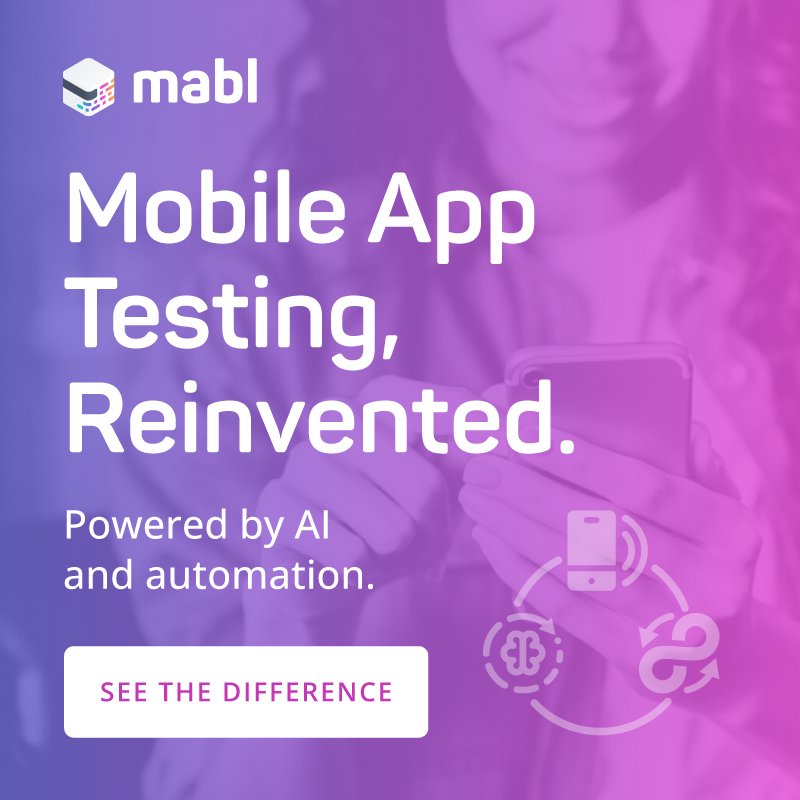Developer collaboration tools and tips from someone who knows
Thursday, August 23, 2018

|
Richard Harris |
Developer collaboration can be tricky for companies, but EveryTeam CEO, Todd Berman, shares how major companies implement collaboration in their work environment.
Lots of organizations claim to prioritize transparency. And there are certainly plenty of tools out there that make it easy for coworkers to share information and communicate, but does that always equate to transparency? Why are people often dissatisfied with their companies' approach to developer collaboration and team collaboration in general?
We connected with Todd Berman, cofounder and CEO of EveryTeam for a chat about what he learned at GitHub, that is informing the EveryTeam approach and how that can impact the way app developers work going forward. Plus some takeaways from previous roles with companies such as NFL and Rdio.
Berman: Transparency requires three things: 1) Access to information, 2) Context that helps you make sense of it, and 3) Access to tools that encourage you to take action. Companies that deliver on true transparency create a culture of collaboration where people know what's happening, understand their contributions to the bigger picture, and are empowered to work better together. They trust and are accountable to each other. It's not always easy, and we believe that the tools teams use play a big part in determining the actual value of transparency efforts.
We often hear from people who are frustrated because their company claims to be transparent and collaborative, but the tools and processes they use don't support it on a day-to-day basis. How work happens is really important. Tools shape company culture, and we're focused on building a product that emphasizes maintenance and accountability - in turn helping employees know that the ideas they suggest, even if they aren't ultimately green-lit, are considered. We're giving teams agency by providing better ways to access trustworthy information, ask questions in context, and direct conversations with individuals.
ADM: You were previously VP of Product Engineering at GitHub. What most surprised you about how engineering teams use GitHub?
Berman: The core idea behind GitHub - an open, organized, collaborative repository where teams can share ideas, solve problems and complete projects - is powerful. It's fundamentally changed the way engineering teams work, and it improves the quality of the products they build. What's striking is the volume and velocity of great ideas engineering teams are able to bring to life because of the workflows that GitHub designed. GitHub created a truly collaborative environment, where individuals and teams take time to compose ideas and changes, get feedback, improve their work and then propose solutions. When you give people the right tool for the job, they will impress you with what they build. If you make it easy for individuals to work together as a team - in a useful way that improves both their daily work and the collective result - it will surprise you how much they help each other.
ADM: You've also led engineering teams at companies such as NFL and Rdio. What are the top three things that great engineering teams do to work together effectively? What can other teams across a business learn from this?
Berman: The best engineering teams have three things in common: 1) Excitement and a chip on their shoulder to accomplish what others said couldn't be done, 2) Relentless commitment to execution, and 3) Effective communication that helps them truly work as a team, not just a collection of individuals. These characteristics would serve every team well. It's achievable, but it requires intention and the right workflows and tools.
ADM: What about cross-functional collaborations? How can developers better work with their counterparts in groups such as product, design, marketing, etc.?
Berman: Clarity on goals is paramount, and the way that teams share information is just as important. When information is shared cross-team, it ensures better understanding and greater depth which leads to better problem-solving, espcially early on between designers and developers. Sometimes projects are delayed simply because the engineering leader may have a different understanding of what they're trying to achieve than, say, the product or marketing leader. They may have different understandings about the timeline or the success metrics. One of the most important things a developer can do during the progress of any project is to ensure that all of the key constituents have insight and awareness of project progression - and a way to ask questions about it.
Once a project is up and running, the other thing developers need to do is share regular updates with their cross-functional counterparts. If they run into unexpected issues that will change the timeline or uncover an opportunity to make the final deliverable even better, it's important that they remain aligned with the rest of the team that's working on a project. The right tools play a big part in this process by providing an easy way to access information, important updates, and relevant changes. That was one of the key starting points for the way we think about EveryTeam - how do we make work process easier?
ADM: What did you learn at GitHub about the ways that people and teams work that influences how you're now building EveryTeam?
Berman: I learned that people work better when they can trust their shared information and have a reliable way to contribute ideas and solutions to the bigger picture. In today's world, every team inside of a company is using different apps to direct their work, and a shared digital workspace where all teams can collaborate in one environment is essential. With EveryTeam, we're inspired by the same philosophy of open developer collaboration that made GitHub so successful, and we're now opening that up to every team. The EveryTeam repository advances workflow across all of the teams within a company, improving the way workers share, organize, edit, collaborate on and maintain content.
ADM: The EveryTeam repository is currently in pilot implementations with a few dozen select customers. In building this new product, what's the toughest challenge you've faced so far? How did you solve it?
Berman: The big realization we came to after some of our early product development work and user testing is that we couldn't just build another product that helps people create and consume content - even if it's better than other options out there. The reality is that work is now distributed across so many apps and services that the only way to truly improve the way teams work together is to integrate with the tools they're already using. So we put a lot of effort into integrations, and EveryTeam is now the one place where people know they can find updates and changes to their information, assigned tasks and what they are responsible for.
Now, when a new customer starts using EveryTeam, the first thing we have them do is connect to their existing tools, e.g., GitHub, Google Drive, Figma, Dropbox, Airtable, OneDrive, Mode Analytics and others. The feedback has been good so far, with people telling us that EveryTeam quickly becomes the central hub their teams rely on for collaboration, communication, project progress, and as a resource for all of their company's shared information.
ADM: What's commonly misunderstood about the ways people work today? Can software tools really change the way work gets done? Or will people always find workarounds so they can stick with "the way we've always done it"?
Berman: We've grown too accustomed to spreading our attention and time across many different services and apps, and although it feels like we're getting a lot more done, it's often just a distraction. We shouldn't just accept this as the reality of work. Software tools can definitely change and improve the way work gets done, but too often we mistake the busy work that so many tools create as the actual work that matters.
At EveryTeam, we think people are pretty smart and can quickly sense when they're being made to do busy work. That's when they look for workarounds and try to do things the way they have in the past. We don't want people to feel forced to accept busy work, so we stopped to consider the things that actually help people get real work done. We're focused on making it easy to find the right information and built features that help teams maintain it all.
ADM: How do you think about the large and constantly growing number of apps, services, and platforms that teams today use in their daily work? At some point, are there diminishing returns on the intended boost to productivity?
Berman: There's certainly no one-size-fits-all answer, and I generally tend to think it's a good thing that more solutions are continually coming out, intended to solve specific problems. But there is a point at which the number of different apps and services we use in the course of a day slows us down. It just becomes cumbersome trying to extract information from one system to use it in another. And that feeling of looking for the information you need but not remembering whether it's in email or Slack or a Google Doc or a Dropbox folder is the worst! We should expect more from our tools, and taking a considerate look at the way people behave in today's workplace is a core part of our decision to create a product that unites all of the tools teams use today.
ADM: How do you foresee this shaking out? Are the industry gorillas eventually going to own and streamline everything? Or will startups truly disrupt and, ultimately, define the way we all work in the future?
Berman: Startups are going to keep pushing us all to evolve our thinking and embrace new and better ways of working. But that also requires working with - not against - some of the big players. At EveryTeam, we're serious about shaking up the status quo. But we're also serious about integrating with established tools that are common in every workplace. That's why we built a repository with a cross-platform layer that makes it easier to search, maintain, edit and update all the shared information across all the apps and services teams are already using.
ADM: What's the secret to getting people to use a new software tool? Signing up a customer is one thing. Having a majority of employees actually using it every day is another.
Berman: It's about providing value to the user - from the first experience to using it every day, you have to give them a reason to come back often. With EveryTeam, we tested the activity in our product and iterated on features until we understood what provided our users the most value. We found that one of the things that keep people coming back is the improvement in collaboration they see inside of their teams.
We hear from customers that the notifications they receive in EveryTeam keep them more engaged than they normally are in other tools. Part of what makes collaboration easier for them includes providing visibility into who has engaged with or contributed to information they've created or shared. Our users are able to add suggestions and comments that are assigned to specific people on their team, and the conversation takes place right in the document itself. Because we value maintainership and accountability so highly, users can always see when information was last updated, and they know they can trust its accuracy. Over time, this creates a culture of trust and reliability - in shared information and between people who work together.
ADM: How does building a culture of collaboration benefit a company? How can a team leader know if their collaboration initiative is working?
Berman: We believe that open collaboration leads to better outcomes, in productivity and employee satisfaction and tenure. Great ideas come from lots of places, and as a team leader, you want to see every member of your team comfortably and confidently contributing. Creating a culture of collaboration and openness where everyone can rely on one source of truth connects the elements of day-to-day work with greater strategic goals. You know you're on the right track when team members trust their shared information as well as their co-workers. It makes them feel accountable to each other and to deliver incredible results.
About Todd Berman
Todd Berman is CEO of EveryTeam, the company he co-founded with two former colleagues from GitHub, where he worked as VP of Product Engineering. EveryTeam, which launched this summer and is currently working with select pilot partners, is building new software that integrates work product and workflow from different services and apps - such as GitHub, Google Docs, Figma, Dropbox, Airtable, OneDrive, Mode Analytics - into one centralized repository that improves the way workers share, organize, edit, collaborate on and maintain content.
Todd and his cofounders Connor Sears and Scott Goldman started EveryTeam to deliver the benefits of open collaboration to every team, building on the organizational principles and practical tools that have made GitHub the go-to collaborative workspace for engineering teams. The company is backed by $3 million in Seed financing from Harrison Metal, Upside Partnership, Index Ventures and Greylock Partners.

Become a subscriber of App Developer Magazine for just $5.99 a month and take advantage of all these perks.
MEMBERS GET ACCESS TO
- - Exclusive content from leaders in the industry
- - Q&A articles from industry leaders
- - Tips and tricks from the most successful developers weekly
- - Monthly issues, including all 90+ back-issues since 2012
- - Event discounts and early-bird signups
- - Gain insight from top achievers in the app store
- - Learn what tools to use, what SDK's to use, and more
Subscribe here














